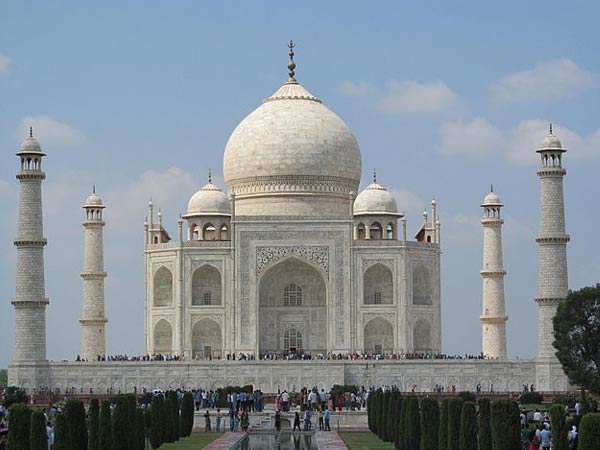New Delhi: The Supreme Court on Tuesday expressed concern over the Taj Mahal’s colour turning brown as it pulled up the Uttar Pradesh government and the Archaeological Survey of India.
Asking if anybody had any clue about the colour of the white marble monument turning brownish, a bench of Justice Madan B. Lokur and Justice Deepak Gupta asked the Central government to take the assistance of Indian experts or from abroad to see the extent of damage and if it can be reversed and the steps that can be taken to check it.
The court expressed its concern after petitioner-in-person M.C. Mehta produced some photographs showing that the Taj was turning brownish. The court was hearing an application for the cutting of trees in the Taj Trapezium Zone.
On February 8, the top court sought from the state government a detailed vision document for protection and preservation of the centuries-old monument.
It also inquired why there was a “sudden flurry of activities in and around the Taj Mahal and the Taj Trapezium Zone (TTZ)” and why leather industries and hotels were coming up there.
During its February 8 hearing, the court directed the Uttar Pradesh government to give details of the number of trees planted in and around the Taj Mahal and in the TTZ — a 10,400 sqkm area spread over the districts of Agra, Firozabad, Mathura, Hathras and Etah in Uttar Pradesh and Bharatpur in Rajasthan.
On December 8, 2017, the court asked the state government to plan for the protection and preservation of the Taj Mahal and the environment around it so that the historic monument could be there for another 400 years and not just for a generation.
IANS

